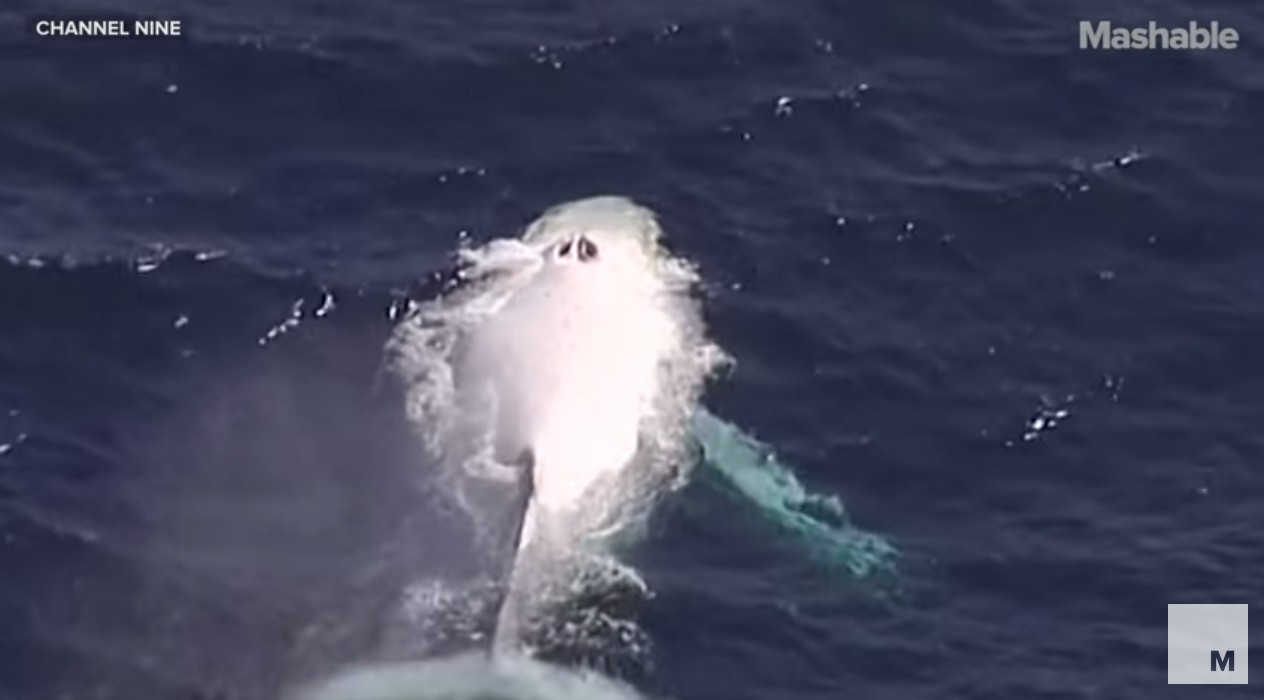Can you cut 1 Tonne of carbon pollution out of your life?
Take the challengeAn all-white humpback whale is having a whale of a time on his migration path up the east coast of Australia
Whale watchers are excited over the recent sighting of a beautiful all-white humpback whale off the coast of Queensland. Although many are hoping that the rare white humpback was Australia's famous white whale Migaloo, most experts are doubtful.
Instead, experts believe that it may be Migaloo Junior (MJ), a smaller and younger white humpback whale, as the timing of the migration, size and physical markings of the sighted whale appear to be inconsistent with Migaloo's. Up till the sighting of MJ in September 2011, Migaloo was thought to be the only white whale in the world.
In August 2013, Migaloo was struck by a trimaran off Townsville, Queensland and bears a scar on his left side in addition to a crooked hook fin, which make up two of his unique features. The sighted whale had neither of these features.

[Image: Mashable]
According to Oskar Peterson, founder of White Whale Research Centre and manager of Migaloo's Twitter account, Migaloo travels up to 8,000km each way from the Antarctic Ocean along the east coast of Australia to breed in the warm waters of Tropical North Queensland and back during his annual seasonal migration. The most impressive part - whales can do all that with almost no rest along the way!
At present, there is one other known white humpback swimming in Australian waters, but it has black spots on its tail.
It is estimated that there are roughly 35,000 humpback whales worldwide, as population numbers have rebounded since commercial whaling ceased. Humpback whales are classified as an endangered species under the Endangered Species Act (ESA).
However, there is a bigger threat looming over whales…
According to the Whale and Dolphin Conservation (WDC), climate change may well be the biggest threat facing whales (and dolphins) today as whale and dolphins may not be able to adapt to the rapidly changing climate caused by humans. Whales are creatures of comfort: they require predictable supplies of food and warm breeding grounds. But experts have warned that climate change will affect the natural habitats of whales with changes in water temperatures and prey availability. This could potentially interfere with the reproductive cycles of whales and ultimately, affect their survival.
Whales are definitely in hot water if we don't do something about climate change now.
You can start doing your own bit to reduce the impacts of climate change by living a low-carbon life. Our low-carbon life dashboard has more than 50 activities to cut pollution. They cover Energy, Food, Travel, Shopping, Money and Sharing.
[Header image: Isaac Kohane]

